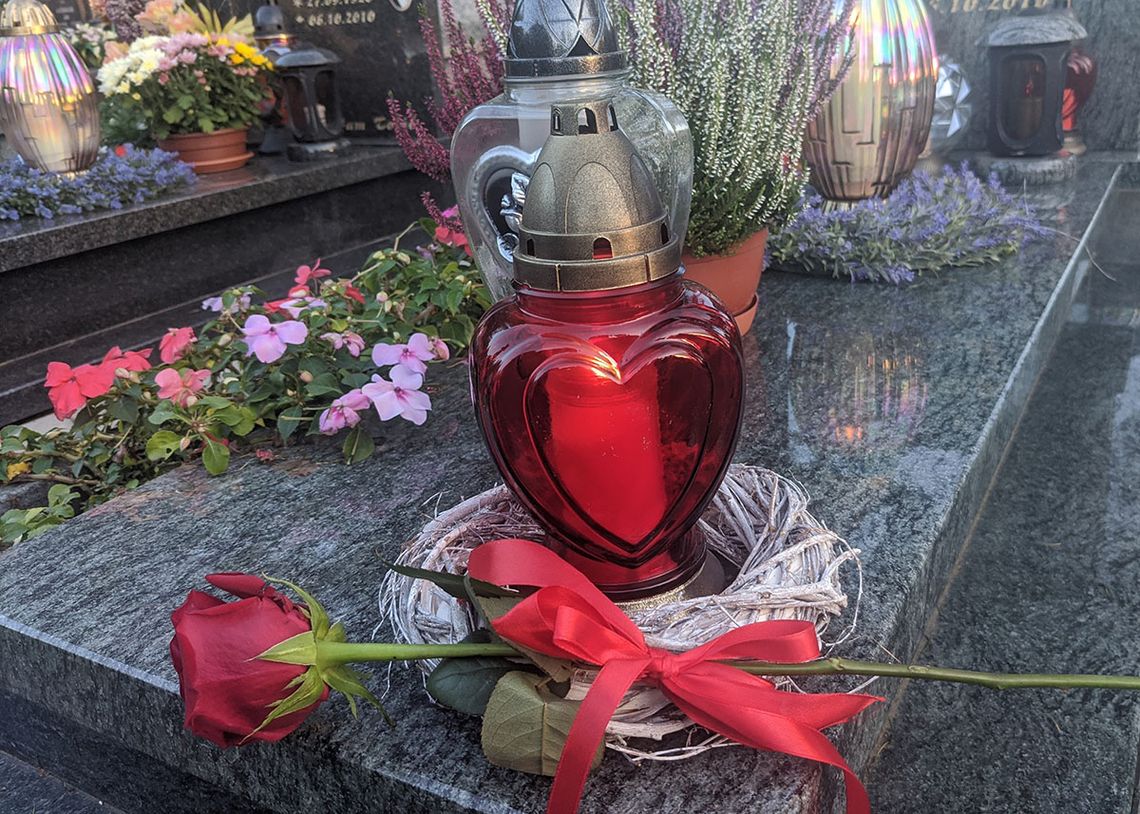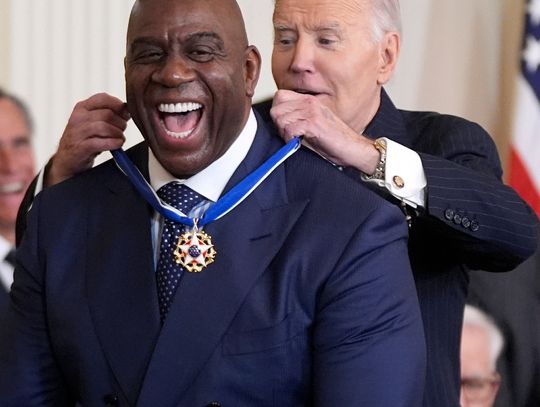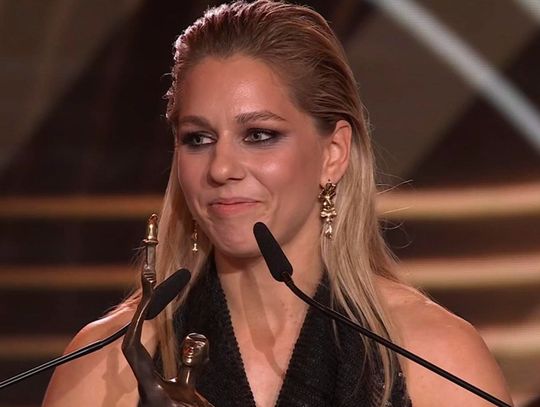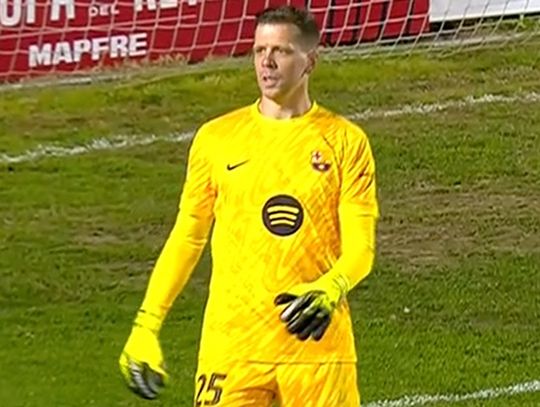Like most immigrants, I don’t have gravesites to visit on November 1st and 2nd, when many of us celebrate All Saints’ and All Souls’ Days.
On those days my thoughts go back to cemeteries in Southern Poland, glowing with light for the special occasion, where most of my loved ones are buried.
But my thoughts also go back to one day in November some years ago, when I said goodbye to my dad.
Two processions were leaving the funeral home that day.
It was a chilly and cloudy day after the rain, with patches of spotless blue peeking here and there.
The first procession took time to leave. A shiny white Cadillac with an elegant casket inside was leading the majestic string of slowly moving vehicles. Cars were slowing down in the middle of Chicago's rush hour to yield to this important and solemn caravan.
Then it was time for the second procession. Through the back windshield of a much older Cadillac, one could see a casket packed into a cardboard box. Just a plain, ordinary box, like the one you get your Amazon stuff in, only larger.
The first procession soon turned into a suburban cemetery.
The second one kept going, leaving the city further behind with each turn, until it reached a little-known security gate at the O'Hare airport. There were no buildings, only grass around, in the middle of nowhere.
The driver stopped the hearse.
“This is as far as you can go. I'm sorry,” he said.
So he left but I had to stay.
As the car with my dad's casket was disappearing from the horizon, so were his dreams, hopes and plans. The plans of a happy and carefree retirement back in his country. House remodeling. A newer and better car that could accommodate all his grandchildren, the ones from America and the ones from Poland. Hugging some of his grandchildren for the first time. Traveling with Mom that they never had the time and money for. Visiting family and friends all over the country, including former neighbors, coworkers, and even old buddies from the Navy not seen in decades.
As he was leaving, so were his modest savings that covered the skyrocketing cost of shipping the casket across the ocean, precious dollars earned with so much sacrifice – at minimum wage, with long working hours, no benefits, no vacations and no complaints.
He was leaving America in a cardboard box, without a suitcase full of presents. No one would welcome him with his favorite freesias at Warsaw Chopin Airport. Instead, his loved ones were ordering funeral flowers, and one relative, a carpenter, was fixing the front door of our family home to make sure the American casket would make it through. This is where the loved ones would come to say goodbye, according to the tradition.
My dad was not the only one who ended up going to the airport in a hearse. Up to 300 human remains, including caskets with bodies and urns with ashes, are shipped from Chicago to Poland for burial each year, according to the Polish Consulate.
The bodies are taken to the airline cargo warehouse at O'Hare International Airport, where they await their final journey across the ocean along with mountains of personal packages full of American goods, like candy, coffee, tools and electronics.
The immigrant always dies more alone, his heart torn between two countries, where his loved ones are.
Not having gravesites to visit is a somber reminder that we, the immigrants, are never really fully at home, no matter how many years we live in our adopted country.
The small church in our hometown was packed on the day of Dad's funeral. There were family and friends from all over the country, including former neighbors, coworkers, and even old buddies from the Navy not seen in decades.
He was buried under a majestic larch tree, in a quiet corner of the hometown cemetery, surrounded by his beloved mountains.
I like to sit at his gravesite and reflect on his stormy life, dramatic death, and his huge heart.
Then I board the plane again to go back to the country that has become my other home.
Joanna Marszałek
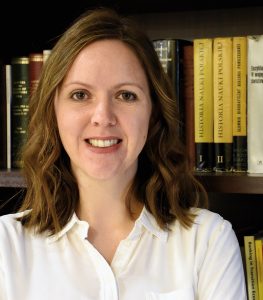
Ustronianka i chicagowianka, na emigracji od 2000 roku. Ciekawa świata, złakniona wiedzy, nieustannie szuka przygód, guza i dziury w całym. Szczególnie wyczulona na ludzką krzywdę i niesprawiedliwość na świecie. Zainteresowana tematami społecznymi, imigracyjnymi, kryminalnymi oraz niezwykłymi historiami zwykłych ludzi. Absolwentka Wydziału Dziennikarstwa Uniwersytetu Jagiellońskiego oraz Visual & Communication Department w City Colleges of Chicago. Od 2016 r. z dumą piastuje stanowisko kierownika działu społecznego „Dziennika Związkowego”.

